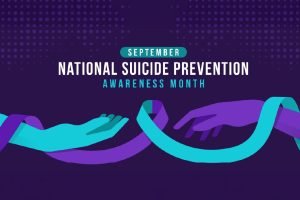What can be more painful than the experience of your children rejecting you? Telling you they hate you? Saying they never want to see you again? Declaring they never had a loving relationship with you? Wishing you dead?
You must have known that divorce or separation from your child’s other parent was going to be difficult. You may have even anticipated watching the dream of your family unit disintegrate. But you never dreamed that divorce would include your children fading away, possibly out of your life forever.
You now know what it’s like to live in a real-life horror movie.
TAR Network™ is here to support you and help you to re-establish the relationships you once enjoyed with your kids. We want you to understand how that when your children say they don’t love you, they don’t want to be with you, or they hate you, this isn’t the truth. Don’t believe the lie. Your children have only adapted to their alienating parent because they don’t know any other way to reduce the stress that comes from the disappearing family life they’ve come to know.
What happened? How did I get here?
Here’s your answer. You are caught up in one of the most dangerous currents in high-conflict divorce. Parental alienation can be difficult for anyone to identify. Parents going through difficult divorces struggle against this powerful force, pulling them further from the shores where they used to nurture and hug their children. It seems the more they fight, the tighter the current becomes – until they are caught up and swept away into the open ocean – alone and wondering if they’ll ever get back to shore.
Some search frantically for a judge, the children’s counselor, even their own attorney — anyone — to help them. But it’s often a losing game.
Persistant and pervasive rejection can be overwhelming.
Your children repeatedly cite mistakes you made in the past. Mistakes you thought other loving and imperfect parents also made: yelling, working too much, missing an important event, showing up late to pick them up from ballet, etc. You can’t beg their forgiveness enough.
Your children’s intense emotionality, fear, and agony seems disproportionate, and the neglectful incidents they bring up are filled with exaggerations — essentially, they are reinventing family history. Their emotions are pitched.
They don’t hesitate to remind you that you don’t listen; you just argue. You believe that orienting them to the facts and reality could help, but they are lazer focused on the statements of the alienating parent. Clearly, they are dwelling on the statement that if you lie often enough, the lie becomes the truth.
The children ask you to show them empathy and respect, and then propose the unthinkable: “If you love me, you will leave me alone. Just walk away.” You tell them you can’t do that, you love them too much, to which they respond: “You don’t get it – you’re so selfish!”
You remain the monster in the horror show that you can’t escape. You ask yourself “Oh, how many times have I heard this? How many millions of parents have attempted suicide over this?” After all, children are the most important people in our lives.
At TAR Network™ we want you to know that your children aren’t the enemy — even though it seems like it is their word against yours. Never stop loving them unconditionally. We can help you to identify the person responsible for the alienation, even if the kids carry it with them into adulthood.
Tools to Fight Parental Alienation
You grow livid— angry at your ex-partner, angry at the counselors, and maybe even angry with your children. The hurt is too painful; the fear is too overwhelming.
In this surge of anger, you might begin to confront your children, the professionals, even speak out of turn in court. And what happens? You unwittingly begin to follow the script of the antagonist — taking on the role of the monster in which you were cast. No one is helping, so you turn into a warrior, fighting to win each battle to restore order, civility, and sanity. You may even think that this is an exercise in futility. since no one else will expose and speak the truth, you truly believe that you need to speak your truth.
How can TAR Network™ and CPTSD Foundation help?
It’s jarring and painful for loving parents to be faced with hatred and resistance to contact from their children. The longer your children marinate in the toxicity of false beliefs, irrational fears, and polarized ideations, the prognosis worsens for their recovery into wellness and restoring relationships.
You need professionals to help you respond, keeping your loving, caring, empathic, and intelligent character in your sight. We can…
- help you understand the alienation process so you can have more compassion for your children and respond to their “resist and refuse” dynamics without unwittingly playing into them;
- help you work and engage more effectively with the professionals involved in your case;
- help you cope and deal with the alienation tactics your co-parent uses so you can better avoid traps and manipulations; and
- help you practice and maintain good and healthy self-care.
Don’t forget about self-care while fighting for your children. In a flight emergency, you’re told to put on your oxygen mask before assisting others. The same is true here.
Alienated children need normality more than they need anything else. They need a parent who is not afraid of them – they need a parent who is loved, happy, and whole – but most of all, they need a place where love and stability is guaranteed to the greatest extent possible..
What Are We Recommending?
- Parents must put the well-being of their children first and adopt co-parenting arrangements that allow for a full relationship between the children and both parents.
- A presumption of equal shared parenting should be made the law worldwide following a family breakup whenever possible (barring any abusive situations that may have existed when the family was intact).
- We must make available fathering programs that support dads undergoing a family break-up with resources and tools to maintain a healthy relationship with their child(ren).







